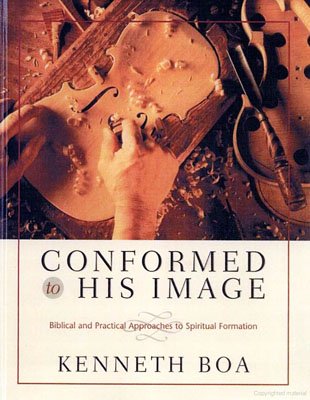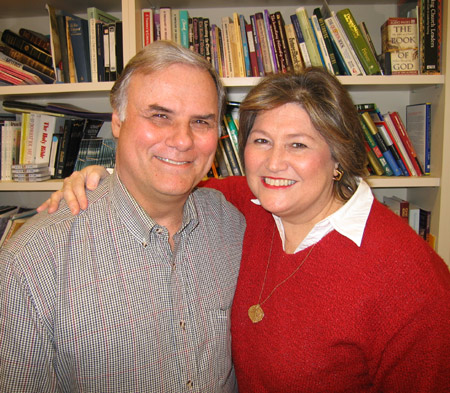 Editors' note: This series explores key doctrines of the Christian faith and their practical ramifications for everyday life. Earlier in this series:
Editors' note: This series explores key doctrines of the Christian faith and their practical ramifications for everyday life. Earlier in this series:
Few points of theology have generated more speculation and debate than the notion that God providentially rules over all things. But in the Bible, the doctrine of divine providence is not first a matter for our minds, but for our hearts and lives.
One thinks, for instance, of the comfort David finds in God's penetrating knowledge in Psalm 139; or Jesus's words "fear not" after his declaration that "the hairs of your head are all numbered" (Luke 12:7).
To learn more about divine providence and its purpose in our lives, I corresponded with John Frame, J. D. Trimble Professor of Systematic Theology and Philosophy at Reformed Theological Seminary in Orlando, Florida, and author of many books, including Systematic Theology: An Introduction to Christian Belief.
What is the doctrine of divine providence? Where might one first turn in the Bible to learn about it?
Question 11 of the Westminster Shorter Catechism offers a helpful definition of divine providence: "God's works of providence are, his most holy, wise, and powerful preserving and governing all his creatures, and all their actions."
I've discussed the biblical basis for the doctrine of providence at length in chapter 14 of my book The Doctrine of God. Some of the most important biblical texts include Romans 8:18-25, 8:28-30; and Ephesians 1:9-11.
Historically, is providence something all Christians have believed in, or is it an exclusively Reformed doctrine?
All Christians believe that God provides for his people, and exhibits a more general kingly rule over his creation. But I think only the Reformed tradition is fully consistent with the implications of this affirmation. The Reformed tradition affirms that in his sovereignty God ordains every event that takes place on in the world, including the actions of morally responsible creatures such as human beings and angels. In many other Christian traditions, God's sovereignty is perceived in more limited ways, often not applying to the actions that result from "free will."
How might the doctrine of providence encourage a Christian struggling with joblessness, or a physical ailment, or an enemy?
The first question of the Heidelberg Catechism provides a wonderfully comforting explication of the doctrine of divine providence:
Q. What is your only comfort in life and in death?
A. That I am not my own, but belong—body and soul, in life and in death—to my faithful Savior, Jesus Christ. He has fully paid for all my sins with his precious blood, and has set me free from the tyranny of the devil. He also watches over me in such a way that not a hair can fall from my head without the will of my Father in heaven; in fact, all things must work together for my salvation. Because I belong to him, Christ, by his Holy Spirit, assures me of eternal life and makes me wholeheartedly willing and ready from now on to live for him.
Christians struggling because of difficult circumstances can take great comfort in the fact that, no matter what befalls them in this life, nothing happens outside of their heavenly Father's loving plan for their ultimate salvation.
How will our prayer language and habits be different if God's providence is real to our minds and hearts?
When the doctrine of divine providence is real to us, we will not question whether God has our best interests in heart in the midst of suffering. Rather, we will ask him to show us how his love will work out our suffering for good. The doctrine of divine providence helps us to trust that God's good purposes cannot be thwarted in our lives, and motivates us to cling to him in obedience even when we are walking in the darkness and cannot see how he is working. "Though I sit in darkness, the Lord will be my light" (Micah 7:8, NIV).
A sound understanding of divine providence will also compel us to ask God to direct our decisions in such a way that we will best appropriate his blessings.
If your non-Christian friend objects to the notion of God's providence as a controlling or threatening idea, how would you respond?
It's not threatening, because for those who trust in Christ, divine providence is for our good—in every way. It is controlling in a sense, because God does control us and everything else. However, there are several things to consider here:
We really can never escape God's control, because God is God.
God's control is a good thing, because it proves that he is always greater than the things that challenge us; so "what can separate us from the love of Christ?"
God's control doesn't negate our freedom, because God typically accomplishes his work in our lives by means of our decisions.
The alternative is far more threatening: If God is not in control, then how do we know that some unnamed evil might not frustrate the intentions of God's love?
What aspects of God's character does divine providence reveal? How does it connect to the larger gospel narrative of the whole Bible?
Divine providence especially reveals God's power, goodness, love, and kindness. Meditating on God's providential rule over his creation will motivate us to say both "what a powerful, huge God we worship" as well as "what a loving, tender Savior we have."
Genesis 22:8 shows the tight connection between divine providence and the gospel narrative. In this passage, God directs Abraham to sacrifice his son Isaac. But when Isaac asks, "Where is the lamb?" Abraham says, "God will provide for himself the lamb for a burnt offering, my son." God then provides a ram caught in the thicket, which Abraham sacrificed in place of Isaac. Hence the divine name Jehovah Jireh, which means "the Lord will provide."
The ultimate expression of God's providential provision for his people came 2,000 years later with the sacrifice of his own Son for our sins. When we put our faith in Christ's substitutionary death on our behalf, we are trusting, as Abraham did, that "the Lord will provide." And as the apostle Paul reasoned, "if he did not spare his own Son but gave him up for us all, how will he not also with him graciously give us all things?" (Rom. 8:32).
Gavin Ortlund is an editor at The Gospel Coalition, associate pastor at Sierra Madre Congregational Church, and PhD candidate at Fuller Theological Seminary in historical theology. He and his wife Esther live in Sierra Madre, California, with their son and daughter. Gavin blogs regularly at Soliloquium. You can follow him on Twitter.
http://www.thegospelcoalition.org/article/every-hair-on-your-head-is-numbered















